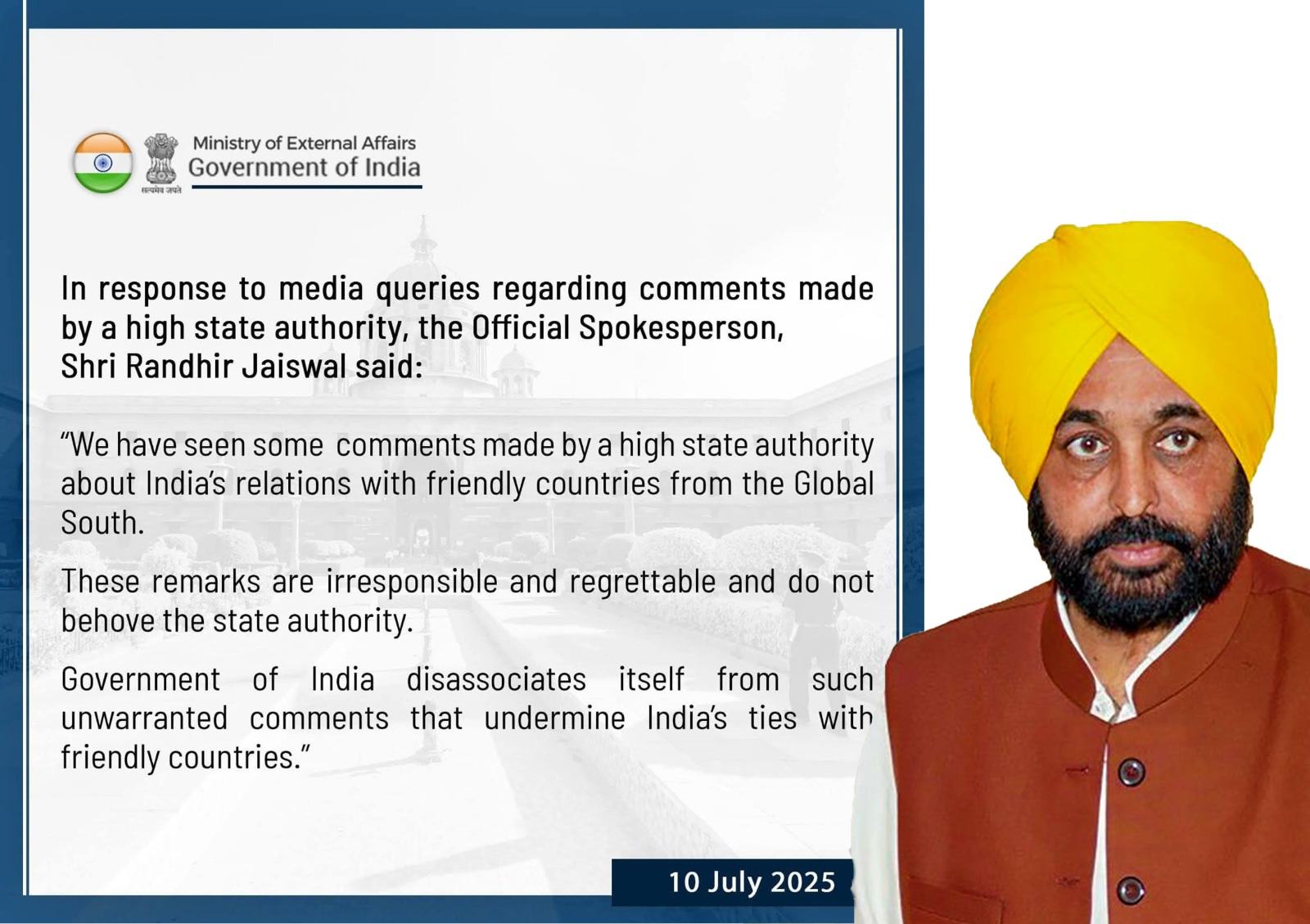
The Ministry of External Affairs on Thursday dissociated itself with the disparaging remarks by Punjab Chief Minister Bhagwant Mann against Prime Minister Narendra Modi on his recent five-nation tour, terming it as irresponsible and regrettable in an unprecedented diplomatic rebuke.
The bitter mudslinging accentuates the growing tension between the Centre and opposition-ruled states, particularly on a foreign policy observation, which is the prerogative of the Union government.
Addressing a press conference, Mann wondered whether the tour of Brazil, Ghana, Trinidad and Tobago, Argentina and Namibia was diplomatically important to Modi as he ridiculed tours to countries with smaller populations.
"Do not know which countries he has been visiting," Mann said dismissively. "He goes to countries that have a population of 10,000 and gets the highest awards there... In Punjab, 10,000 people gather to have a look at a JCB machine."
The Punjab CM's sharpest criticism targeted the Prime Minister's priorities: "He is not staying in the country where 140 crore people live."
The MEA's response was unusually pointed. Without naming Mann, spokesperson Randhir Jaiswal said the government "dissociates" itself from comments made by a "high state authority."
"These remarks are irresponsible and regrettable and do not behove a state authority," Jaiswal stated, using diplomatic language that carried particular weight in suggesting Mann had crossed constitutional boundaries.
The episode raises complex questions about political criticism in India's federal structure. While opposition leaders routinely critique government policies, foreign policy traditionally remains the Union's exclusive domain under the Constitution.
Modi was doing a circuit that India had been doing with countries in the Global South, and he did the BRICS summit. The PM was decorated with numerous high civilian honours, including ones conferred by Ghana and Brazil, and that is why these remarks by Mann were so diplomatically sensitive.
Mann's remarks pose a calculated risk to the Aam Aadmi Party. The party has made it clear by positioning itself as the protector of ordinary people against what it presents as elitist priorities by the BJP.
By challenging diplomatic excursions to minor countries, Mann seems to be appealing to a story that the government will aggrandise its international reputation at the expense of domestic interests, which may be fulfilling to voters struggling with the economic conditions.
However, the approach risks portraying AAP as dismissive of India's legitimate diplomatic interests and relationships with strategically important nations.
This event can be characterized as another pattern of Centre-state tensions during the Modi government especially with opposition-controlled states. Even more complexity is contributed by the foreign policy aspect, which addresses constitutional issues of power separation and proper range of its political critique.
The reaction of the MEA to the criticism of the foreign policy at the state level creates a precedent that may limit the leadership of opposition groups in commenting on international policy.
The debate reveals the thin line that has to be maintained between healthy domestic politics and acting as a united global face. With India being an assertive force in the world, the incident serves to reminder of difficulties in dealing with politics within the country and at the same time upholding diplomatic ties.
The resolution can create significant precedents in similar cases, especially because India is increasingly becoming an international figure, and the challenges of relating to each other in Indian politics are on the increase.